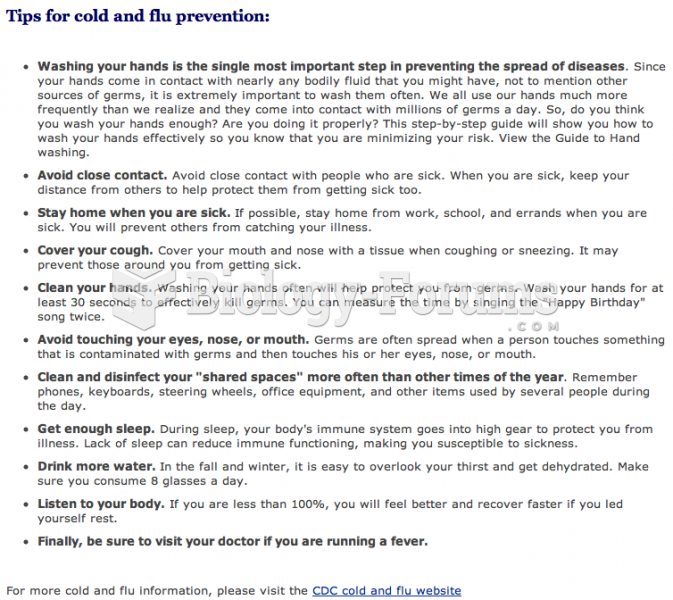|
|
|
The first oral chemotherapy drug for colon cancer was approved by FDA in 2001.
Drug abusers experience the following scenario: The pleasure given by their drug (or drugs) of choice is so strong that it is difficult to eradicate even after years of staying away from the substances involved. Certain triggers may cause a drug abuser to relapse. Research shows that long-term drug abuse results in significant changes in brain function that persist long after an individual stops using drugs. It is most important to realize that the same is true of not just illegal substances but alcohol and tobacco as well.
After 5 years of being diagnosed with rheumatoid arthritis, one every three patients will no longer be able to work.
If you could remove all of your skin, it would weigh up to 5 pounds.
Alcohol acts as a diuretic. Eight ounces of water is needed to metabolize just 1 ounce of alcohol.







